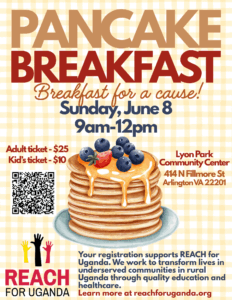7 Ways to be Neighborly
During this time, REACH is pleased to provide information to help make our current situation a little easier. Below is an article by Sarah Kass, originally published on Thrive Global. A link to the original article is here.
COVID-19 came to a world whose social fabric was threadbare. Digitally, we were all more interconnected than ever before. Yet few of us knew our neighbors. Loneliness, once a disease of the old, had become the new normal for the young. We were all socially distant long before we were told we had to be.
In 2019 Tom Hanks starred in the Oscar nominated, “A Beautiful Day in the Neighborhood.” In 2020, now that we have all become refugees, we can remember we are all neighbors.
Neighbors are a bit like family and a bit like friends. As with family, we don’t choose most of our neighbors. But like our friends, neighbors are people with whom we have something chosen in common-where we live. In our iWorld of remote connection, frictionless commerce, and increasingly artificial intelligence, we paid little attention to those who happened to live nearby. Before Corona (BC), together alone, we had lost touch with seven mainstays of neighborliness. Now, alone together, we are reclaiming them.
Real. Amazing vacations! Perfect families! With self-protecting filters, we curated ourselves for one another’s screens. We sanitized our lives of anything foul. No bad days. No fights with spouses. No impossible days at the office. “How are you?” had become a prompt for fake news. That was all BC. Now, no filter can flatten the facts. Our lives have become too thin for curation, our fears too fat to be faked. In every language, “How are you?” has become real. Now, as we all wear new physical masks, we can let the old masks go and be authentic.
Present. Even aswellness gurus advocated living in the present, our fears of missing out were so well fed we had little appetite to be where we were. Countless views from everywhere else eclipsed the view outside our own windows. The daily deluge of everyone else’s stories drowned our own. That was BC. Now, we’re grounded in the continuous present. There is no mall or bar or beach to escape to. The only place to be is where we are.
Empathy. Our eyes feasted hour after hour on the steady drip of could have, would have, should have. His new car! Their incredible adventure! Her huge diamond ring! That was BC. Now, as “I want what you have,” becomes “I have what you have,” envy’s fist opens, and empathy blooms.
Sharing. On our screens, we shared the cake and ate it, too. This one-sided sharing without sacrifice upended the mutuality of giving. (It’s not generosity without giving anything up.) That was BC. Now we are remembering how to share–a puzzle we’ve finished, a book we’ve read, time to listen or run an errand–and to enjoy the gift of giving.
Noise. We were barreling toward a frictionless future, devoid of unwanted noise and opinions. We wore noise-cancelling devices, and blocked or unfriended those who got in our way of thinking. That was BC. Now, stuck at home, we cannot help but hear the living sounds of our neighbors, and ourselves.
Trust. With every opinion presented as fact, and ever-present PSAs reminding us to regard each other as strangers, if not suspects, trust was famously in decline. That was BC. Now, all in a common uniform, we smile in solidarity from behind our masks.
Agency. As invisible algorithms directed what we consumed and with whom we spoke, we ceded more and more of our minds to machines. And with so much to watch, we lost sight of our hands. We had all become users. That was BC. Now, with an abundance of time, slowly and imperfectly, we are baking, making, and creating anew.
Now that we have all become refugees, we know we are not alone. Perhaps when the sun comes out, we can emerge from this hell, attuned to the algorithm of place with a door open to the paradise of those nearby.
